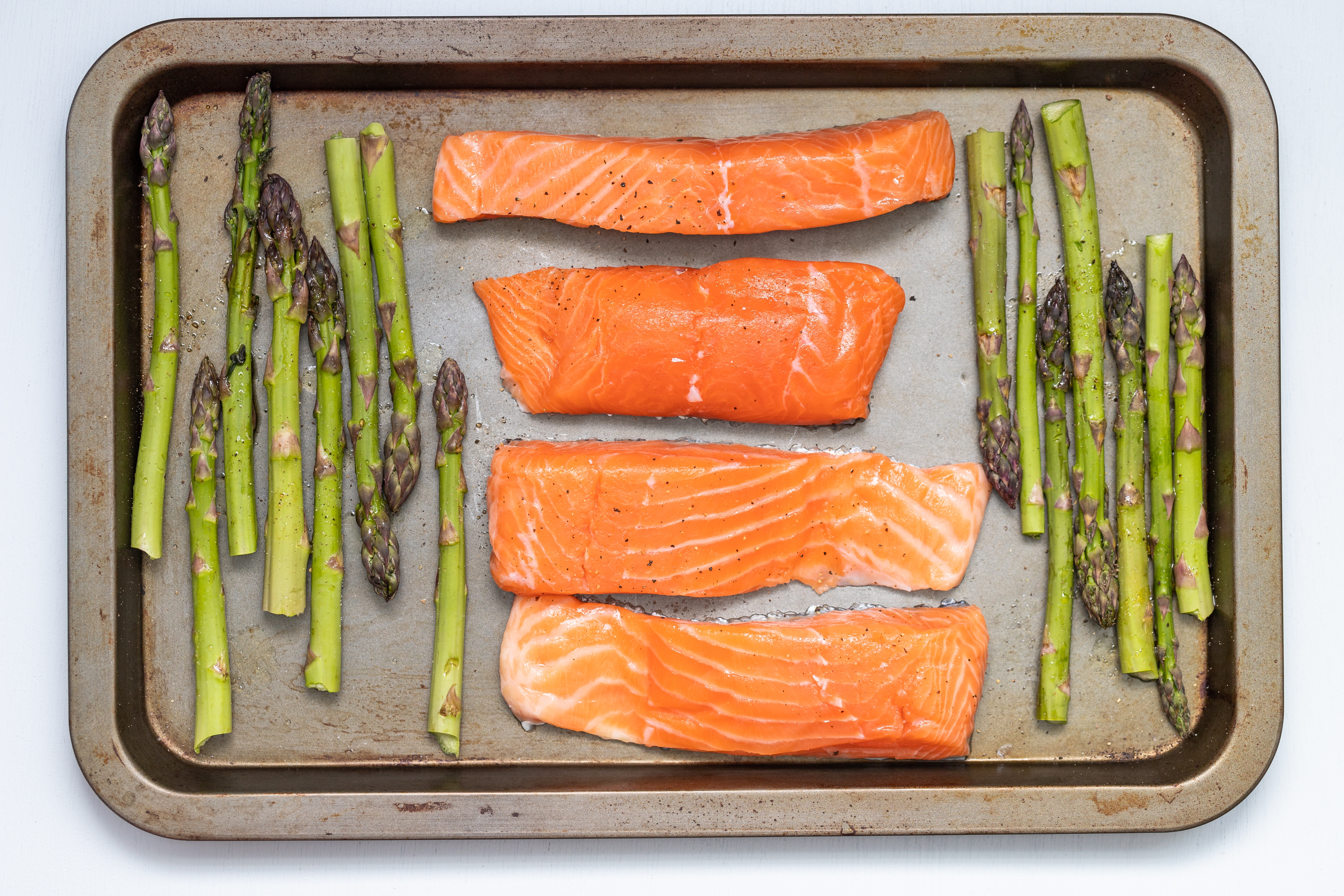
The issue of brain health is personal for Max Lugavere.
Without any prior family history of neurological disease, Max’s mother suddenly started showing symptoms of dementia at just 58 years old.
Max’s mother had always been a high-performer — as a mom to her three young boys and as a business entrepreneur.
“It was a shock to the family, and it was something we faced with disbelief, because this was the first time any kind of mental cognitive challenge reared its head in my family lineage,” Max told me when we chatted by phone last week.
After the symptoms appeared, Max then accompanied his mother from doctor visit to doctor visit, where she was put through a battery of tests that did not yield conclusive answers or treatment plans.
Eventually she was diagnosed with an official neurodegenerative condition and prescribed drugs for both Alzheimer’s Disease and Parkinson’s Disease.
But at that point, Max had become disillusioned with how the medical system was prepared to treat a complex condition such as dementia. He was not satisfied just to have his mother take these “biochemical band-aids,” and so he set out on his own to see if there was a better way.
…
With a background in journalism, Max was accustomed to doing rigorous research and not accepting facts at face value.
He was determined to find out if there was anything that could be done to slow or improve his mom’s symptoms. And of course he became very interested in prevention so as to not suffer the same fate.
Max started by consuming a lot of information on his own — reading books, watching TED Talks, digging into PubMed, and focusing on the most credible peer-reviewed medical literature.
Once he had a foundational knowledge in place, he reached out to the top researchers in the field — the ones focused on lifestyle and dietary interventions for the management and prevention of cognitive disorders. He built relationships with these leading researchers and visited with them at their labs. As these relationships deepened, Max became one of the researchers himself.
In the years since, Max has established himself as one of the foremost experts in brain health. He has lectured at top academic research institutions and continuing medical education courses, co-authored a peer-reviewed textbook chapter used by clinicians for dementia prevention, directed and produced a documentary about the impact of diet and lifestyle on brain health, and last year released the New York Times bestselling book Genius Foods.
…

Max has made it his life mission to learn everything he can about brain health and performance. Although his mom passed away last year, Max knows it is not too late to protect his own brain, and to help others do the same.
Much of Max’s research has centered around food, which plays a critical role in brain health in two key areas.
The first is ensuring the brain maintains plasticity as it ages. That basically means the brain’s ability to change, grow, and form new connections.
Max says one of the best ways to achieve this is by feeding the brain a healthful array of fats. Specifically, the brain really needs omega-3 fatty acids. The two crucial ones are DHA and EPA. “If you start eating wild salmon, pasture-raised beef, and omega 3-enriched eggs, you are pretty much checking off those boxes,” according to Max. You don’t need omega-3s in especially large quantities.
The brain also needs omega-6 fats, but the modern Western diet is already filled with those, and therefore it doesn’t require a conscious effort.
The second primary component of brain health is the brain’s ability to defend against the many stresses of modern life.
“Today one of the problems in the modern world is that our brains are being attacked from every angle,” says Max. “We’ve got a depleted food supply, we’re under-slept, we’re chronically stressed, we’ve got bright lights attacking our circadian inclinations at all hours of the day, we’re more sedentary than ever before, and we’re confronted with countless toxic chemicals in our food supply, our water, and in the air. Our bodies are strong and resilient and adaptable, but they can only contend with so much.”
We can help protect our brains against these stresses by not consuming an overabundance of omega-6 fatty acids (found in grain and seed oils in most packaged foods, including safflower, sunflower, canola, corn, and soybean oils), which can trigger inflammation in the body.
We also want to get enough fat-soluble antioxidants, such as Vitamin E which has been correlated with reduced risk for developing Alzheimer’s Disease (foods high in Vitamin E include avocados, almonds, sunflower seeds, and spinach).
Phytochemicals also work to protect our brain cells. Max is a big fan of carotenoids such as lutein and zeaxanthin (found in dark leafy green vegetables such as kale, spinach, and broccoli), and astaxanthin (found in marine animals and algae). Cruciferous vegetables (such as broccoli, cabbage, and radishes) also help protect the brain over time and stimulate the body’s detox pathways.
…
With these overarching principles in place, I wanted to dig into how Max actually eats on a daily basis.
He told me that he builds his diet around three core components: Greens, cruciferous vegetables, and high-quality protein.
He makes a point of eating a large salad every day. “The consumption of a big bowl of dark leafy greens every day is associated with reduced cognitive aging by up to 11 years,” Max told me. He makes sure to include a serving or two of cruciferous vegetables every day, such as broccoli and Brussels sprouts.
“And then also I am a big fan of proteins — grass-fed beef, wild salmon, chicken,” says Max. “I am a huge fan of properly-raised meat. I think that grass-fed beef is a health food, a superfood even.”
He says protein is important for several reasons. Protein is required to supply the building blocks for our brain’s neurotransmitters. Protein also helps to support the maintenance and growth of lean muscle mass, which is especially important as we get older. “There is a relationship between muscle strength and brain health,” Max says.
And protein is also valuable because it is the most satiating macronutrient. When we eat more protein, we tend to eat less carbs and harmful fats. Therefore Max prioritizes protein — along with fibrous vegetables — at every single meal.
He also eats organic as much as possible, because research shows organic foods tend to be more nutrient-dense and safer from pesticides and certain heavy metals.
Max adheres to a low carb diet, but he will eat starches such as sweet potatoes during times when he is especially physically active. In general, he avoids all grains. “Not because I think grains are toxic or anything like that — they are just not particularly nutrient-dense,” he said (although he strongly discourages the consumption of any grains for people who are pre-diabetic or diabetic).
When Max is on the road or eating out at restaurants, he doesn’t stress about being perfect — he does his best and leaves it at that. That might mean ordering a piece of farm-raised salmon along with some sautéed vegetables, even if he has no idea what oil they’re using.
When he’s flying, occasionally he’ll just fast, but other times he can get by with nuts and some beef jerky.
…
Max acknowledges that nutrition is a polarizing topic.
“We have all these factions in the nutrition world,” he said. “We have zealots on the keto side, on the vegan side, on the paleo side. The reality is that the truth is always going to be somewhere in the middle.”
Although Max sees the merits of certain aspects of the keto and paleo diets — and stresses the importance of healthy fats for the brain — he is not one of the high-fat fanatics pouring coconut oil and butter on everything.
And while he eats a plant-rich diet, he is anything but a vegan.
“Everybody has their own point of view, and mine is that you really just want to eat real food in as close to its natural state as possible,” he says.
…
To close our conversation, I asked Max to distill all of his learnings into the No. 1 thing people should do for optimal brain health. Since Max is the author of a book called Genius Foods, I was expecting a food-related response. But after thinking about it, he went in a slightly different direction.
“If I had to make one single recommendation, it would probably be to exercise,” he said. Exercise is so important — it is so critical both for brain health, but also for mental health.”
He said that exercise is an incredibly potent weapon to fight depression, anxiety, and cognitive impairment. And while he is a fan of certain types of aerobic exercise, he thinks resistance training (weight lifting) is underrated and probably the most important.
“I think it’s really important to be strong, and robust, and resilient, and vigorous — and resistance training is just a great way to achieve that,” said Max. “Most of the research centers around aerobic exercise, but I wouldn’t be surprised if we see and hear more about the value of resistance training for the brain in the years to come.”
…
There is no doubt that our brains and bodies are bombarded with stresses in today’s world.
With these dietary and lifestyle recommendations, Max is helping all of us to fight back.
Andrew Merle writes about living well, including good habits for health, happiness, productivity, and success. Subscribe to his email list at andrewmerle.com.

